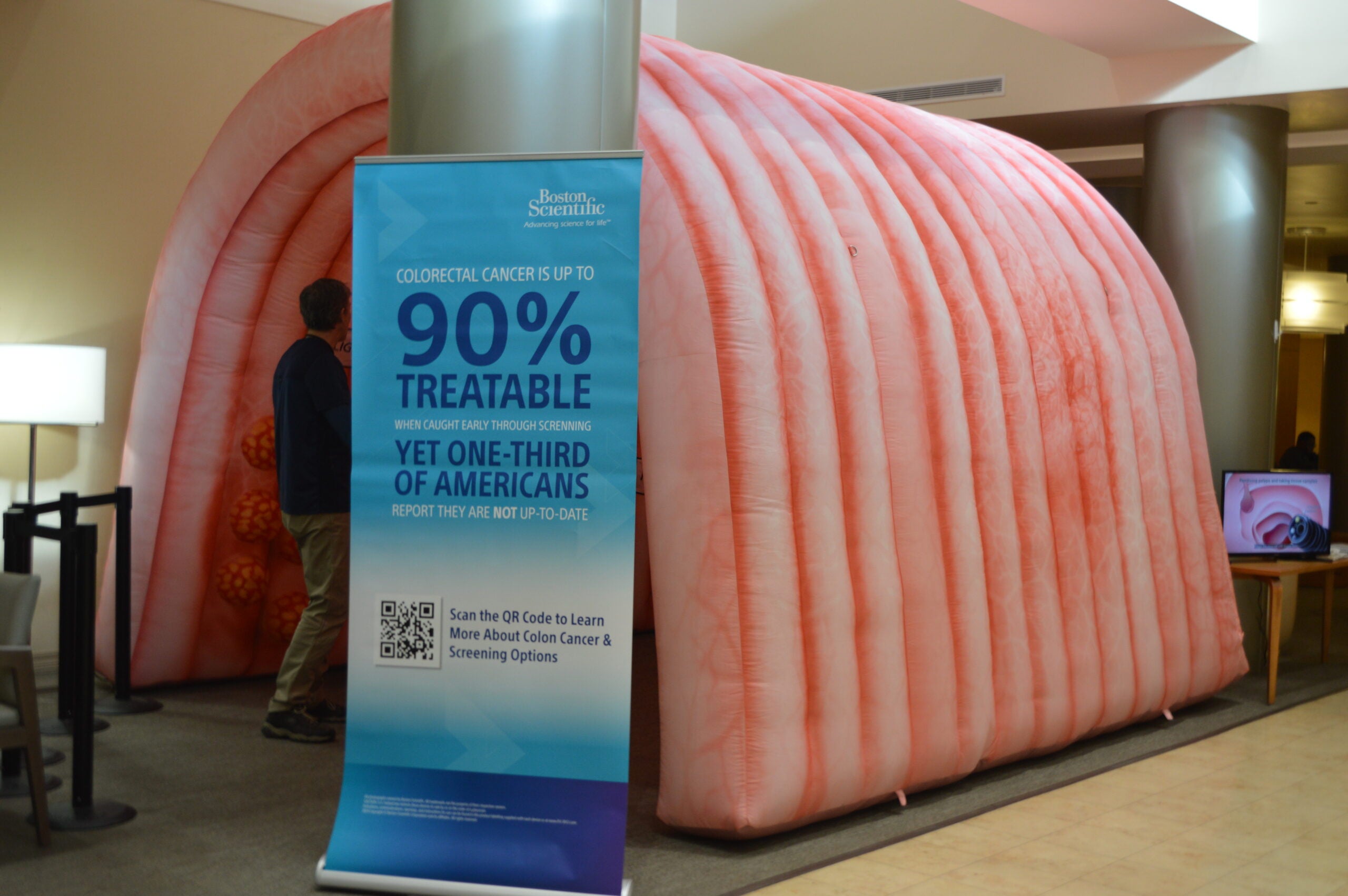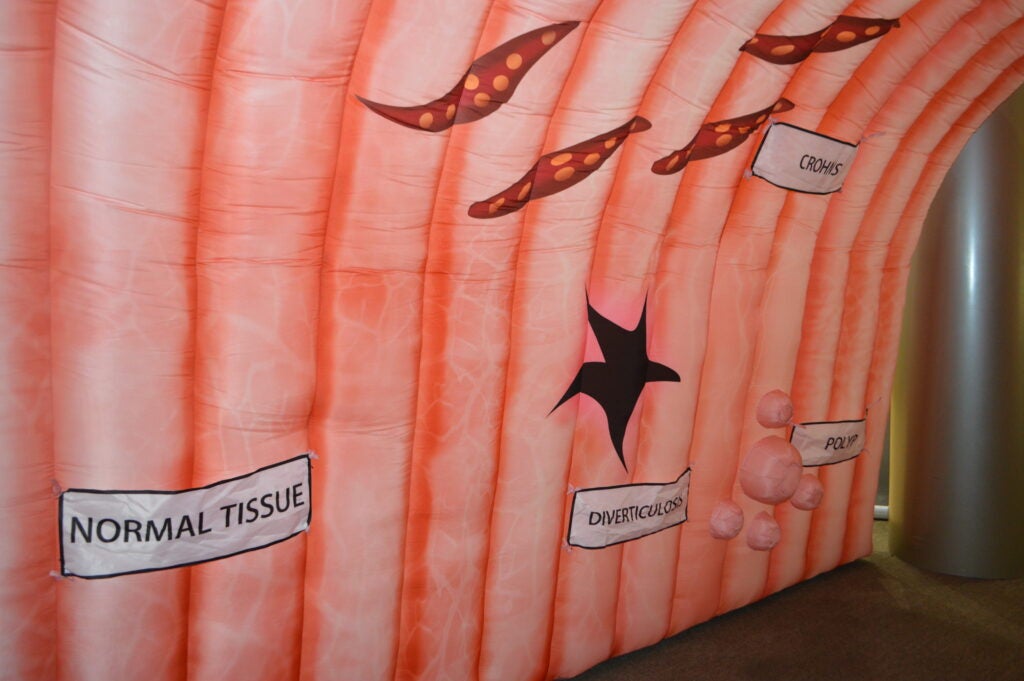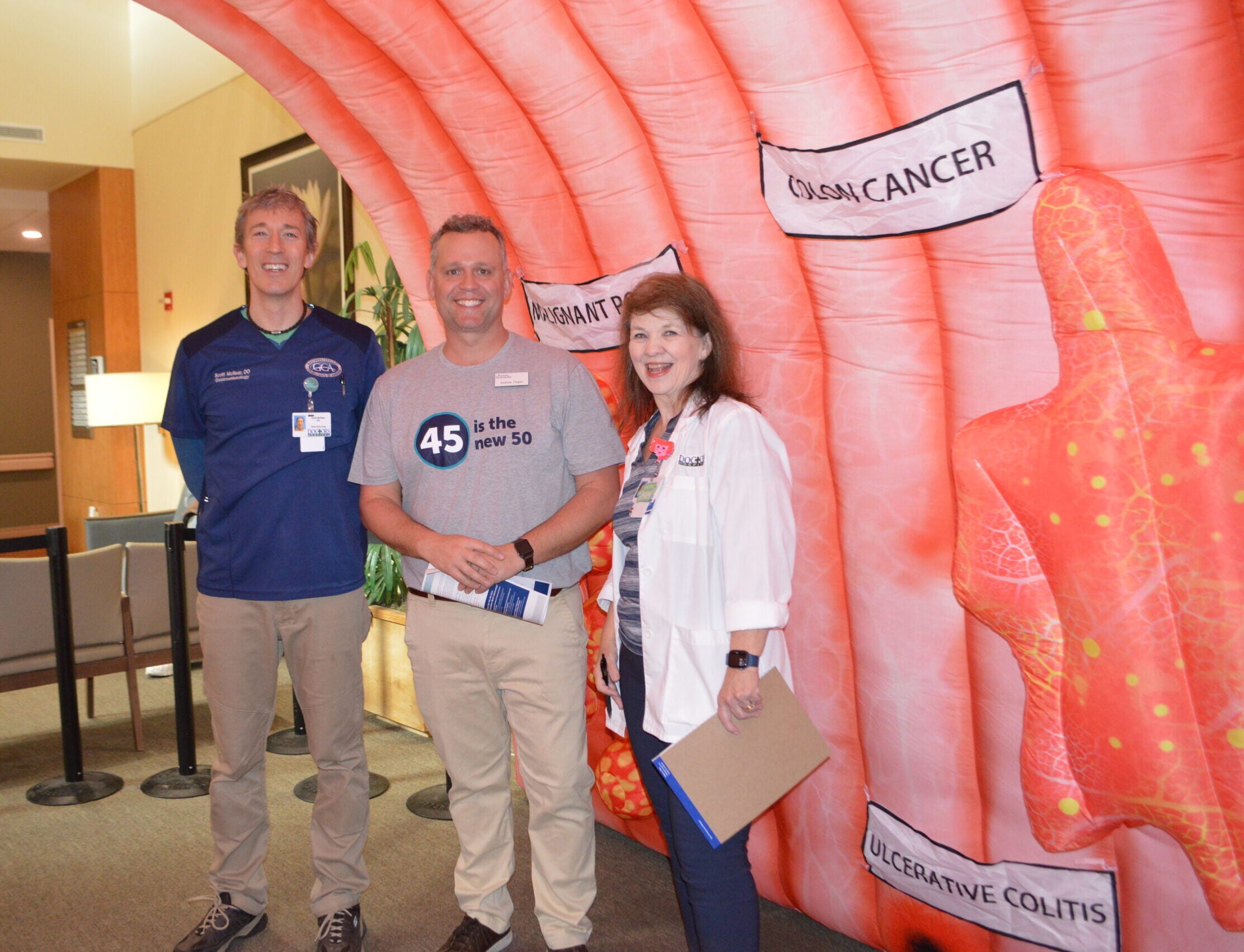Doctors Hospital of Augusta brought an interactive twist to gastro-education on Thursday morning, with a larger-than-life inflatable colon.
The massive large intestine balloon formed a small tunnel for visitors to walk through, where they could view oversized depictions of hemorrhoids, diverticulosis and Crohn’s Disease.
“This is a great opportunity to have the community come and kind of get a larger vision of what we see when we do the screening colonoscopies, and take away some of the fear that goes along with all of that,” said Endoscopy Department Director Donna Graham.

Colon cancer awareness
The replica colon also included polyps – benign interior skins tags – as well as precancerous and cancerous lesions. This is especially significant, because polyps can develop into precancerous lesions, which can develop into cancerous ones.
With March being Colon Cancer Awareness Month, Graham said it was the perfect time to share some knowledge about the disease.
“The thing about colon cancer awareness is that it is preventable, treatable and beatable,” she said. “If we catch those polyps before they turn into cancer, we can prevent cancer ever developing. If we catch them when they’re precancerous lesions, we can take them out and prevent them from progressing. And then if we do find cancer and we find it early enough, then surgical interventions and medication are more effective and you can still have a long and healthy life.”

45 is the new 50
According to Graham, colon cancer is “very deceptive” in that it often comes with no symptoms; therefore, colon cancer screening via colonoscopy is critical.
She noted that the preferred age to perform colonoscopies has gone down.
“Everybody used to think that, you know, we do this at fifty years old. Well we do it at 45 now, because colon cancer is one of the most rapidly increasing cancers, as well as, I think it is the second cause of death related to cancer in the United States,” she said.
Graham added that it’s important to keep up with your family history and have conversations with your primary care doctor and gastroenterologist to determine the best time to get screened for colon cancer. “It’s very individualized,” she said.









